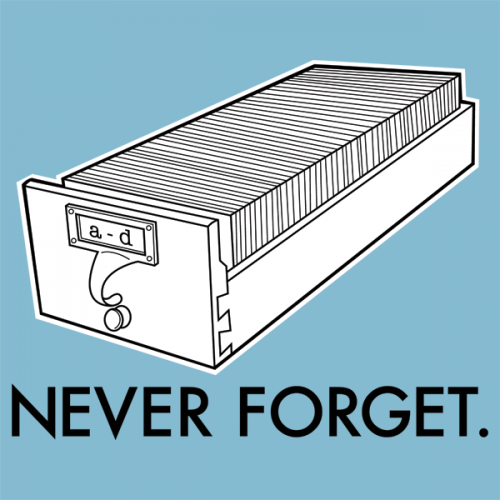A lot is said about the power of grace and the human ability to forgive.
For those that believe that there is a forgiving deity that looks over the lives of all believers it’s hard to say whether the power to forgive is viewed as divine or also within the province of mere mortals.
Sometimes it’s much easier to believe in a vengeful God, because it seems in that instance, we would truly be made in “His” image. In the case of a forgiving God, human nature makes it hard to measure up to that standard.
I will always remember the words of John McCain during one of those periods in his public life that he was actually credible, in reference to Osama Bin Laden.
“May God forgive his soul, because I certainly won’t.”
After all, who are we to forgive?
Whether it is the private confession of sins or congregational prayers for forgiveness we are all flawed and we have all introduced sorrow and harm into the lives of others. Whether through passive or active positions, we could all benefit from forgiveness.
 To a large degree, being able to forgive is self-serving. The animus or grudges held over being wronged can keep the aggrieved from moving forward and making decisions and taking actions to benefit themselves. Breaking the chains that shackle may begin with the single act of forgiveness. How else do you get on with the rest of your life?
To a large degree, being able to forgive is self-serving. The animus or grudges held over being wronged can keep the aggrieved from moving forward and making decisions and taking actions to benefit themselves. Breaking the chains that shackle may begin with the single act of forgiveness. How else do you get on with the rest of your life?
What better way to thumb your nose at your tormentor than to move forward and prosper?
But what about the latter half of the old saying “Forgive and Forget”?
Why Am I asking so many questions?
So many in response to horrible acts have adopted the mantra “Never Forget,” in response to man’s inhumanity and the pains suffered.
To forget is to repeat. You don’t have to be Santayana to realize the logic of that concept, although if you also buy into the concept that history repeats itself, you’re doomed regardless.
I’ve never met an historian that doesn’t remember history, other than Newt Gingrich.
“Never Forget” was emblazoned on all of the literature of the Jewish Defense League. It has adorned many 9/11remembrances and would certainly have been applied in the aftermath of Pearl Harbor, as well. In it’s more elegant form it is inscribed in the plaque at the Auschwitz site and even in German subway stations.
Forgetting is not so simple. Nearly 200 years later we still talk about the Hatfields and the McCoys and really, how many people were effected by that, other than the occasional case of acute lead poisoning and in-breeding?
On Sunday there was a great article in the New York Times about an American Hockey player who is now playing on the German national team. What made the article worthy of writing, publishing and reading was the fact that the player, Evan Kaufmann, was not only Jewish, but much of his family was deported from their German ancestral village and perished in the Auschwitz concentration camp during the Holocaust, perhaps together with most of my family.
The article raises questions of forgiveness and has some poignant issues for consideration.
Forgetting is never part of the equation.
It’s really trivial to somehow bring the issue of stocks into a discussion that’s preceded by the Holocaust, but the very ideas of forgiving and forgetting are really part of nearly everything that we do.
So to break the ice, let me share one of my favorite jokes.
Question: “What’s worse than finding a half eaten worm in a muffin?”
Answer: “The Holocaust.”
As horrible as those years were, part of what helped people to survive from day to day must have been humor. Among the things that could never be extinguished was humor. Szelhamos had it in great abundance.
OK. Faith, too, but not as much.
So now that it’s accepable to move forward, I remember every single losing decision that I’ve made when it comes to stocks. Where my short term memory may be lagging in other areas, it’s every bit as good as the long term memory when it comes to that topic.
Not only can I not forget, but I can’t forgive either.
The problem is that there’s no one to blame other than myself and I’m not willing to let go. Enabler and victim all in one is, at the very least, an efficient model. I don’t need a diva like entourage to enable me to do stupid and destructive things.
Technology has been my bane. Whether Dell Computer, Yahoo!, Hewlett Packard or some others over the years, even though the decisions were mine, the prejudice is directed toward them, but the chains are still on me.
It’s not terribly likely that my prejudice is causing those companies any great duress. Instead, if there is any detriment, it’s probably at my own expense since the prejudice and the clinging to the distaste has kept me from moving forward as new opportunities made themselves evident to others.
When it comes to investing, there’s not much place for emotion. Not greed, not fear and certainly not hatred.
Each Monday, I feel a sense of rebirth, as a new options cycle gets underway. But unlike the Hindu and Buddhist concepts of rebirth, I have full awareness of previous lives, decisions and actions. Not that it necessarily helps in any way.
Repeating certain actions is nothing more than a response to positive reinforcement and pleasure seeking. I use my list of “Old Reliables” and consistently go back to them for what I believe will be another good series of outcomes.
Unfortunately, some actions either reflect poor judgment, schadenfreude or simply forgetting the past.
The funny thing is that despite lessons learned and despite the wounds to show for it, there’s another part of human nature that consciously or sub-consciously wants to conquer and vanquish.
Or at the very least stand up to the tormentor and strut to a Gloria Gaynor tune.
This week, I’ll have nearly 60% of my portfolio that needs to be replaced due to assignment of call contracts and expiration of the put contracts that I’d sold.
A week ago, I would have been of the opinion that I would not likely find myself selling put contracts again, just because there were no stock bargains to be had.
But just a week later, those sales were the best decisions of the entire February options cycle, with the exception of doing so with Research in Motion.
In the space of just two weeks time I’ve gone from believing that I would never again take those actions to looking for precisely the same opportunities as the coming weeks’ trading begins.
Forgive?
You bet.
Forget? Yeah, maybe that too.
In the case of Evan Kaufmann, the story has another interesting lesson. That is the case of the spokesperson for the German Hockey team, who also happens to be a history teacher. He has urged Kaufmann to tell his story and that of his family to his team-mates and the German people, yet he is uncomfortable discussing the topic himself with Kaufmann.
“I can’t speak with someone when my people killed his people.”
The chains and shackles go in both directions.
Neither will truly be free until the aggrieved forgives the tormentor and the tormentor is able to accept grace.
I don’t understand hockey.
I also don’t understand how families and friends can become estranged over really trivial matters.
But I do understand how Evan Kaufmann can find himself filled with the kind of pride playing hockey in Germany that he may never have found playing hockey in Minnesota. Forgiveness is incredibly empowering.
I understand Kaufmann, just like I can understand how some of my relatives dropped their chains and finally purchased a Mercedes Benz.
So when we’re done celebrating President’s Day, I’m going to give Dell, H&P and Yahoo! another look.
This time, without an historical noose to guide me, but still paying attention to the phantom neck tightness that will always be there to remind me.
Forgive, you’ll be better off. But forget that I told you so.
Correction
A reader, who is currently involved in his own internecine squabble informs me that the JDL slogan was “Never Again.” I guess I forgot, as if I really cared about historical accuracy in the first place.
Check out Recent PortfolioTransactions and
Transaction Performance
